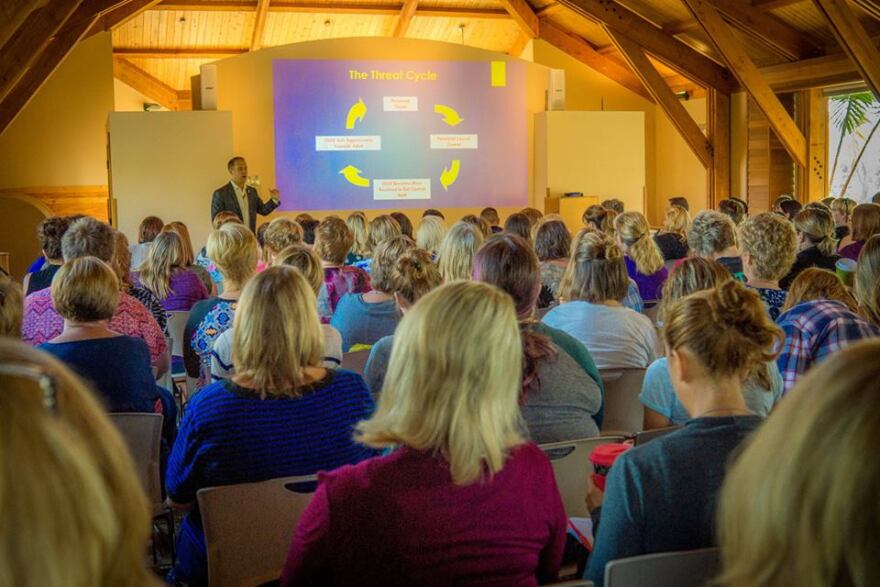A recent WYSO investigation revealed thousands of kindergarten through third grade students are suspended each year. State data also show school officials remove children of color from the classroom much more often than white children. Officials frequently cited “disruptive” behavior as the reason for suspending younger students -- behavior such as not following directions or talking out of turn. Many Miami Valley child advocates are pushing for teachers to seek alternative approaches to classroom discipline.
Scott Ervin is a former Ohio public school educator. He says he's been developing alternative classroom discipline techniques since his career in education began more than a decade ago. He left the classroom in 2015 to run a for-profit business designed to teach adults new ways to handle some child behavior issues.
"I have worked as a teacher, principal, discipline specialist, really concentrating on working with kids who could be termed 'at risk,' very high level of poverty in most of the kids," he says. "Lots of adverse childhood experiences have been experienced by my students, so I’ve use these skills and procedures to elicit the positive behaviors that I need for kids to be successful in my class, and they need to be successful in life."
Ervin says he also enjoys putting his years of school system experience to work to, "allow administrators to be educational leaders, instead of people who put out fires all day long," he says, "because, generally, really difficult kids often have low self-esteem and they'll have a lot of trust issues. So, when you say, 'I think you're fantastic!' the difficult kid is going to think, 'I'm not fantastic, and what do you want from me?"
Ervin not only uses behavioral control methods he's studied, such as what he calls, "The Nine Essential Skills for the Love and Logic Classroom," but skills and procedures he's developed that he says help, "create a more positive school climate where kids can enjoy learning and teachers can enjoy teaching."

The consultant says, "if a kid just came from an abusive situation at home, we're going to need to change his brain chemistry before he gets into the classroom, and that’s part of what we do make sure kids are ready to learn no matter what just happened at home."
In late July, Ervin will be in Yellow Springs for a three day conference detailing his approach to building relationships with kids. He will also host a workshop in early August for parents, teachers, and other childcare professionals to talk about his techniques.
Listen to the interview:



